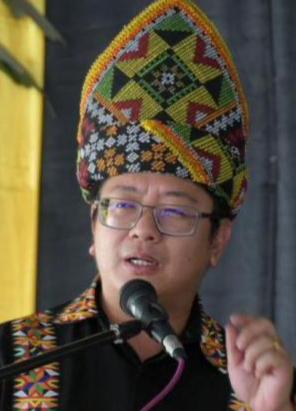PENAMPANG: The approval of the Sabah State Constitution (Amendment) 2023 was more important to stop elected representatives from leaving their parties after elections compared to the abolishment of Article 6(7) of the Sabah State Constitution.
United People’s Kinabalu Organisation (UPKO) president Datuk Ewon Benedick, who is also Kadamaian assemblyman, said this was because the selection and appointment of Chief Minister still could be done under Article 6(3) of the Sabah State Constitution.
Also, Article 6(7) no longer seemed relevant and should be abolished as there was a loophole as it did not clarify whether a party leader qualified to be a chief minister if they lost in the election even if their party won a majority in the elections.
“In my view, it should be considered that there was a clear winner, a party that won more than 50 per cent in the election. Then in the event that there is no party or coalition of parties that win more than half, what is tabled and approved will serve as a guide for the TYT (Tuan Yang Terutama) to select a chief minister based on the person with majority support,” he told reporters here today.
Article 6(7) refers to a situation where a political party that wins the majority of seats and the party leader is a Sabah assemblyman that may have the possibility of having the support from the majority of assemblymen.
The Sabah state assembly passed a bill last Thursday with 75 assemblymen approving, while four were absernt during the third reading after it was tabled by Chief Minister Datuk Seri Hajiji Noor.
During the second reading, a bloc vote conducted on Clause 2 of the bill witnessed 61 assemblymen approving that Article 6(7) be abolished, 14 against and four absent.
Ewon said there was a need to refine Article 6(7) so that the Yang Dipertua Negeri could have a clearer guide to appoint a chief minister after elections, and he welcomed a special community to strengthen the definition in the state constitution.
He also said that interpretation of selecting a chief minister from minority parties in the state assembly was not as easy as claimed following the abolishment of Article 6(7).
The party with more elected representatives will always claim they are more qualified to be appointed chief minister. We need to view it from a practical and realistic manner, not just assumptions,” he said, adding that every coalition had their own formulas to determine their chief minister candidate.
— BERNAMA


